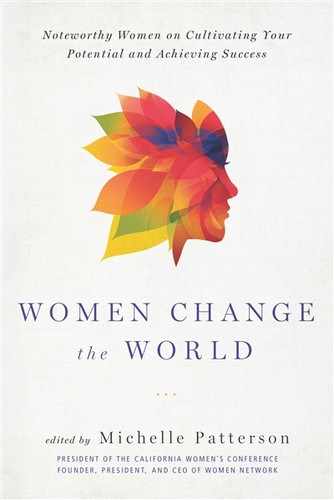 Lucy Sanders is CEO and cofounder of the National Center for Women & Information Technology (NCWIT) and also serves as executive-in-residence for the ATLAS Institute at the University of Colorado at Boulder.
Lucy Sanders is CEO and cofounder of the National Center for Women & Information Technology (NCWIT) and also serves as executive-in-residence for the ATLAS Institute at the University of Colorado at Boulder.
Lucy has worked in R&D and executive positions at AT&T Bell Labs, Lucent Bell Labs, and Avaya Labs. In 1996, she was awarded the Bell Labs Fellow Award, the highest technical accomplishment bestowed at the company, and she has six patents in communications technology.
Lucy serves on several high-tech start-up and nonprofit boards and frequently advises young technology companies. She has served on advisory boards and commissions for the University of California–Berkeley, the National Academies, and the US Department of Commerce. She has received several prestigious awards.
Lucy received her BS and MS degrees in computer science from Louisiana State University and the University of Colorado at Boulder, respectively.
As a woman in computing, I am acutely aware of women’s underrepresentation in the field. That is a sad thing, but it also represents a tremendous opportunity. What would women invent if they were inventing the technology of the future, the technology upon which our world increasingly depends? We don’t know, alas, because most technology today is created or invented by men. But I know that when women are designing technical products and services alongside men, they will not only solve problems differently but also solve different problems.
Members of underrepresented groups in any discipline or sector face significant cultural challenges. Bias is often unintended, but it is bias nonetheless, and it creates institutional barriers to success in hiring and promotion. Understanding the social science research on underrepresentation can make a tremendous difference for technical leaders and for the underrepresented themselves. Those underrepresented also can feel isolated and outnumbered, causing them to feel like they don’t belong or can’t contribute.
That said, I’m not sure that as a woman in my field I really behave in a different way than the men. I may have had to work harder in some cases to overcome the fact that women are not normally present in the kind of technology leadership positions I have held. I was fortunate to have worked for Bell Labs, an organization with diversity and inclusion in their corporate DNA. That made it far easier for me, I think, than for others that I know. I didn’t really have much time to think about it. I was creating great technology, raising a family, having fun. At times, organizational barriers annoyed me, especially if I thought they were slowing me down.
I’ve been successful partly because I listen carefully to feedback, incorporate what’s good about it, and forge ahead. I am an inventor. I like to take up unformed ideas, help shape them, iterate on them, and then go around again until finally something of value emerges. I am a big-picture thinker who also loves to dig into details. I am collaborative and transparent.
Designing technology is a creative process, one in which we bring the collection of our life experiences to the table—our hopes, dreams, passions. Technology enables the human race to mitigate some of the major challenges of our day. It’s important that the female point of view is part of this critical and creative process. For example, women need to be helping create health services software and social networking platforms, but they also need to be involved in the implementation of security software and vital communications systems.
There have always been women in this field—not many, but some have been prominent: Ada Lovelace, Grace Hopper, Jean Sammet, and other women helped invent the computer and computer programming languages.
On a personal level, my high school math teacher Sandra McCalla taught me how to program an early desktop computer and encouraged me to persist in technology. She went above and beyond to make sure we were well versed in the emerging computing space. I try to pass that on in my own career. I lead a nonprofit, the National Center for Women & Information Technology (NCWIT). We work in every state to ensure that young women have access to education and careers in computing. We welcome involvement by both women and men in our programs.
On a more personal level, it’s hard to give advice in a book like this one because advice is so dependent on an individual’s context. What works for me may not work for others. But I think it’s important in any context to stay open to life’s detours and see what opportunities may lie down those roads. Some of my most successful moments were unplanned and quite unexpected. The important thing was that I noticed the opportunity and capitalized on it.
